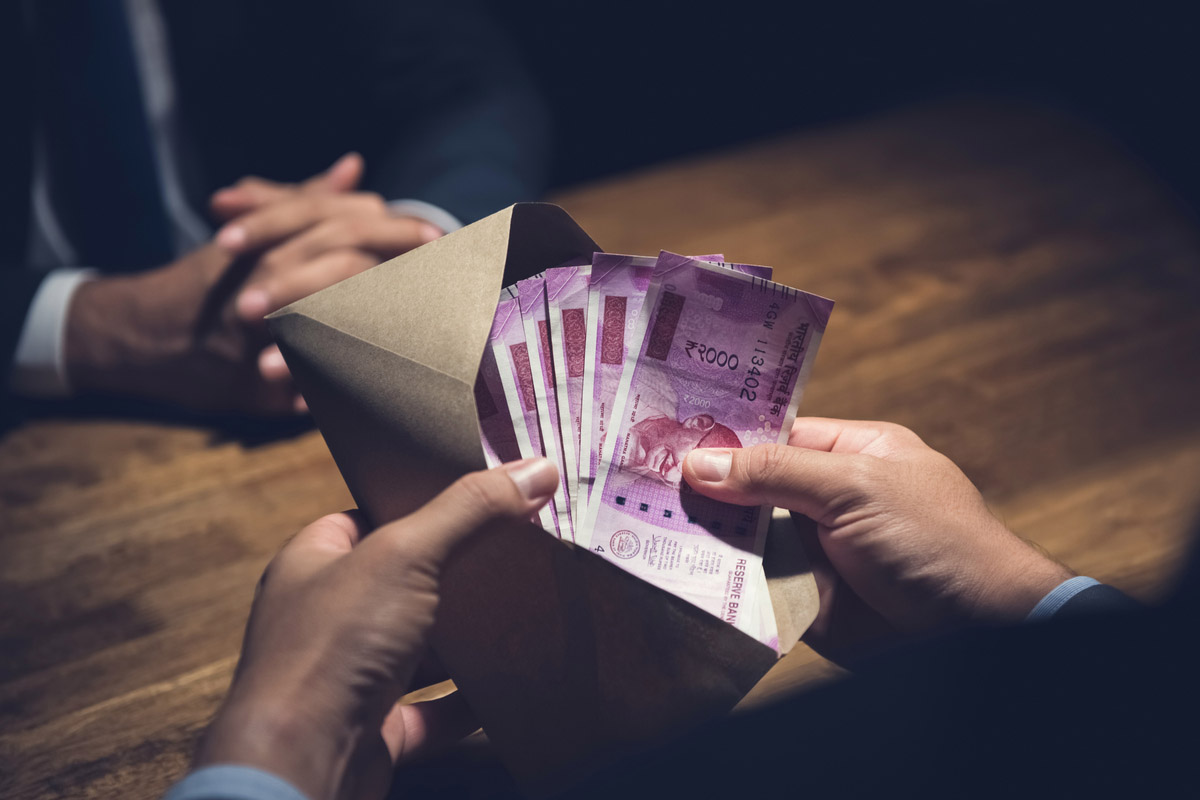India’s democracy unique example for modern world: Prez
President Droupadi Murmu on Saturday said India's democracy is a unique example for the modern world and many countries of the world are learning from our election system and management.
Despite intricate details of income or campaign funds, the core transparency question is missing: the original source of assets disclosed.

(Representational Image: Getty Images)
A young man contesting the Maharashtra Assembly elections in October has declared assets of around Rs 16 crores (US$ 2.5 million), in his affidavit filed with the Election Commission of India – but not revealed is the original source of his wealth, including property he says was gifted from his parents. From where did they get it? Electoral candidates have to be asked probing questions, to save a democracy and country.
India awash with corruption is a dysfunctional democracy, a perversion of the Constitutional power of the people. We cannot anymore afford to turn a blind eye to corruption, saying, “we cannot expect better from politicians and bureaucrats”. We can. Unrealistic to expect a corruption free utopia, but unrealistic too to expect progress while corruption poisons nearly every aspect of life – from potholes in badly made urban roads to loopholes in electoral transparency.
Advertisement
No more sitting passively while corruption continues being India’s biggest roadblock to growth since 1947. Those staying silent at corruption around them, like a former prime minister with impeccable personal integrity, become enablers of that corruption.
Advertisement
Ending corruption needs more penetrating scrutiny of electoral candidates. About 440 of the 536 MPs in the current Lok Sabha are crorepatis (millionaires). How much of that is honestly earned wealth?
How did you accumulate such assets? The Election Commission (EC) made a start to finding the answer – courtesy prodding from the Supreme Court – by involving the Central Board of Direct Taxes. But tax-vetting will not be enough. The Enforcement Directorate and forensic accounting will be needed to track original source of wealth.
If the affidavit mentions a property worth Rs one crore gifted from the grandfather, how did the grandfather get it – particularly if he was a clerk in a small office. Find the original source of that asset. In other words, explain the difference in assets before and after a family member entered political or public life.
Without probing the original source of wealth, corruption cannot be rooted out. Disclosure of assets will remain an eyewash, a public declaration of (part of ) the loot, or even a money laundering system.
Lawless crooks and their relatives will continue being elected lawmakers. For the forthcoming elections in Maharashtra, the EC received 7,514 candidate applications, it accepted 5,879, rejected 1,202. The EC has this year made available online the affidavits of electoral candidates before elections (affidavit.eci (dot) gov (dot) in), a step forward to stop crooks from becoming lawmakers. Voters, citizen groups must use the assets information to ask candidates searching questions.
Any transparency in this process was thanks to the Association for Democratic Reforms (ADR). The ADR published affidavits (myneta (dot) info) from India’s lawmakers.
Professors from the Indian Institute of Management, Ahmadabad, established the Association for Democratic Reforms in 1999. Their work led to the Supreme Court making it mandatory for electoral candidates to disclose financial, educational background, criminal record.
But the devil is in the missing detail. Form-26 that candidates file with the EC demands details of immovable, movable assets, bank deposits, investments, value of vehicles and jewelry owned, land and property. But the affidavit does not seek answers to the all-important question: the original source of significant wealth, as with two former chief ministers from a humble financial background, or another former chief minister and union minister said to have amassed thousands of crores.
The current Lok Sabha has 43 per cent of legislators with a criminal record.
We need accountability. Accountability significantly includes the word ‘account’ – so track the money to track corruption, across generations.
Two generations of a political family may not have contested elections to avoid disclosing assets. The third generation contests elections hoping to escape scrutiny of disproportionate assets. That scrutiny has to be increased, to save the country from lawmakers elected with corrupt money.
India is not alone with such problems. Votes in the USA face similar unsolved mysteries. Some elected politicians have accumulated millions, with annual salary of around $250,000. Candidates file a 13-page Financial Disclosure Form with the Congressional House Committee of Ethics, and the Senate Select Committee on Ethics – but it too has loopholes.
This despite American electoral candidates and those in public office answering pointed questions such as “Did you or your spouse have ‘earned’ income (e.g., salaries, honoraria, or pension/IRA distributions) of $200 or more during the reporting period?” They are asked about assets and “unear ned income”, transactions (above $1000) by “you, your spouse, or your dependent child for investment or the production of income”, earned income, liabilities, positions held, agreements, gifts, travel, even payments made to charity in lieu of honorarium for speeches, appearance, a media article.
Despite intricate details of income or campaign funds, the core transparency question is missing: the original source of assets disclosed.
No surprise that serious questions are hovering over former US Vice President Joe Biden and his son Hunter Biden’s peculiar financial dealings in China and Ukraine. Likewise, sinister mystery has long surrounded finances of Bill and Hillary Clinton and their Clinton Foundation.
But as in India, corruption in the mainstream media ensures key anticorruption questions are not asked, no answers persistently sought. To fill that glaring gap, more citizen groups have to follow the good work of ADR.
Time to relentlessly ensure those in public life explain the original source of their accumulated wealth. Ensure we liberate India from corruption, in this overdue second war of independence.
Advertisement